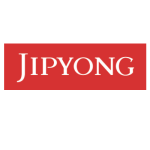According to a recent survey conducted by the Korea Chamber of Commerce and Industry on 300 companies nationwide, around 40.3% of companies selected the EU Corporate Sustainability Due Diligence Directive (EU CSDDD) as a key ESG trend for 2023. Remarkably, the survey shows a big gap between their concerns and their knowledge of actual practices regarding the growing number of human rights due diligence regulations: nearly half of the respondents (47.6%) had no immediate plan in response to the upcoming EU CSDDD.
The recent global trends epitomise the move toward the regulatory scheme away from the voluntary scheme. G7 countries and the EU have institutionalised human rights due diligence to compel private and public enterprises to conduct human rights due diligence. With the advent of so-called mandatory human rights legislations across the world, private enterprises in South Korea are finally concerned about ensuring respect for human rights in their business activities and supply chains.
New guidance for business and human rights reporting and evaluation
On 13 July 2022, the National Human Rights Commission of Korea (NHRCK) issued recommendations to the heads of 30 government ministries and 17 local governments subject to management evaluation. The primary aims of the recommendation were as follows:
Reporting and disclosing the human rights performance of the state-owned enterprises and public institutions which are subject to the supervision of the aforementioned ministries and governments; and
Providing more explicit reporting and evaluation criteria.
To effectively implement these recommendations, the NHRCK published the Business and Human Rights Reporting and Evaluation Guidance, thereby providing a reliable and credible measure of human rights performance. It does not supersede the previous guidelines and manual, namely, the Human Rights Management Guidelines and Checklist and the Human Rights Management Manual for Public Institutions, published in 2014 and 2018, respectively, but complements them.
This new guidance is meaningful because it shows the NHRCK’s efforts to conform its reporting and evaluation measures to the widely recognised international standards such as the UN Guiding Principles on Business and Human Rights (UNGPs) and OECD Guidelines for Multinational Enterprises (OECD Guidelines). According to the NHRCK’s report on around 1,600 government agencies and state-owned enterprises, the reporting and evaluation standards used in human rights impact assessments varied among the entities, and thus they were hardly reliable. More importantly, they did not present any reasoned or evidentiary explanation for why some of the human rights considerations were overlooked in the past.
Pilot project for refining the roles of private enterprises
In 2018, the NHRCK issued recommendations to 988 state-owned enterprises requesting them to carry out human rights impact assessments and disclose their human rights performance. Through this effort, the NHRCK intended to create a ripple effect on private enterprises to a similar degree, since many private enterprises rely heavily on public procurement and are associated with public institutions in their supply chains and business operations.
Since then, more than 1,000 state-owned enterprises, including public institutions and local public enterprises, have conducted human rights impact assessments on an annual basis and made their human rights performance reports available to various stakeholders. Albeit this came with some limitations, particularly a lack of engagement with stakeholders in the process of human rights impact assessments.
In June 2022, the NHRCK conducted a month-long pilot project in partnership with three expert groups, including Jipyong LLC. This pilot project was designed to expedite the slow spread of the ripple effect to private enterprises by providing publicly available models for conducting human rights impact assessments and integrating human rights due diligence into operations and governance. The three companies that participated in this pilot project were:
Pulmuone (food and agriculture industry);
SeAH Besteel (steel industry); and
SM Entertainment (entertainment industry).
Since the food and agriculture industry has a high risk of impacts in the downstream value chain, a full value chain approach was used for Pulmuone. Given that the steel industry is labour-intensive, SeAH Besteel’s human rights impact assessment mostly concerned workers in their operations with a broader range of actually or potentially affected human rights. In the case of SM Entertainment, the expert group tailored and conducted the industry-specific human rights impact assessment with a focus on the actual or potential impacts on K-pop idol trainees.
Legislative proposal for the growing business and human rights trends
On 8 December 2022, a bill was proposed to strengthen human rights responsibilities for business activities in conflict-affected and high-risk areas, given the increasing number of Korean companies allegedly involved in human rights abuses abroad. This bill is designed to amend the Overseas Resources Development Business Act, which provides for subsidies, loans, tax privileges, and orders to import overseas resources in case of an emergency in a bid to secure overseas resources.
However, there is a loophole since there is no particular provision which allows proactive identification of human rights risks in business operations. This bill aims to highlight the crucial need to ensure respect for human rights by business enterprises operating in conflict-affected and high-risk areas. It is worth noting that the term ‘due diligence’ in the bill refers to the process of identifying human rights and environmental risks, and communicating with stakeholders to mitigate negative impacts on human rights that may occur in connection with overseas resource development projects.
Additionally, the due diligence required under the bill should be conducted in line with the international standards such as the UNGPs and the OECD Guidelines. According to the bill, the minister of trade, industry, and energy may order an overseas resources development project to be suspended or withdraw from the area if deemed necessary, in consideration of diplomatic security, safety, and international standards.
Meanwhile, a series of forums took place to examine the possibility of a legislative proposal more closely for mandatory human rights due diligence within South Korea. For instance, on 15 June 2022, the Korea Bar Association and the National Assembly ESG Forum, a parliamentary research group consisting of 63 lawmakers from the ruling party and the opposition party, co-hosted a panel discussion. The discussion was intended to review the global trends of mandatory corporate due diligence on human rights, environment, and governance and to examine relevant challenges and opportunities.
In addition, attempts have been made to anchor corporate responsibility to respect human rights and due diligence in business enterprises’ operations via legislation. A civil society network named Korea Transnational Corporations Watch has drafted a human rights due diligence regulation. Also, the Korea Bar Association has formed a task force with business and human rights experts and is currently drafting regulations on human rights due diligence in supply chains as well.
Recommendation to bridge a legal loophole for remediation
A special investigation committee was established in 2019 to conduct thorough research into the victims of the Humidifier Disinfectant Case and the April 16 Sewol Ferry Disaster. The Humidifier Disinfectant Case refers to a series of incidents that caused the deaths of several people and harm to many sufferers in South Korea in the early 2010s. It was worth noting that the use of certain humidifier disinfectants containing toxic chemicals was attributable to this tragedy.
On 10 September 2022, the special investigation committee presented a series of recommendations drawing from the investigation report. One such recommendation urged the speaker of the National Assembly, the minister of Justice, the minister of Labor and Employment, and the minister of the Environment to enact what is tentatively named the Corporate Due Diligence Act. The humidifier disinfectant tragedy resulted from the lack of preventive measures in the whole value chain, among other things, the downstream value chain affecting consumers and end-users. Since household chemicals such as humidifier disinfectants are widely used by the public, actual and potential negative impacts can be identified, prevented, mitigated, and addressed only if downstream human rights due diligence is carried out. Therefore, the scope of human rights due diligence as in the recommendation stretches from the upstream to the downstream including the responsible design, marketing, distribution, consumption, and end-of-life disposal.
Slow rise of private enterprises
For many years, private enterprises published their sustainability reports on an annual basis with a separate chapter on their human rights performance and human rights structure. Last year, SK Hynix published a first-ever stand-alone human rights report and continued to publish a human rights report this year. SK Telecom, an SK affiliate, followed suit, opting against separate reporting on human rights performance. Both SK Hynix and SK Telecom utilized the UNGP Reporting Framework (UNGPRF) against their human rights performance to align their reporting with international standards.
On 16 May 2022, HD Hyundai, one of the largest South Korean conglomerates, issued a publicly available policy statement committing it to respect human rights in its business activities, based on which to establish the Business and Human Rights Committee. The Chief ESG officer chairs the Committee, thereby assisting the board in fulfilling its oversight responsibilities with regard to corporate human rights performance. On top of that, the duties of the Committee include:
Implementing and reviewing human rights impact assessments;
Proceeding with training on its human rights policy commitments; and
Monitoring salient human rights issues arising from periodic human rights impact assessments.
If any salient human rights issue is deemed significant enough to be escalated into gross human rights abuses, the Committee reports them to the board. HD Hyundai also urged its 10 subsidiaries to follow suit.
On 4 January 2023, Shinhan Financial Group became the first financial holding company to publish a human rights report with the results of the human rights impact assessment. They reportedly aligned their human rights performance with the UNGPRF.
Only some Korean companies such as Samsung Electronics have made gradual progress in their human rights performance. On 21 November 2022, the World Benchmarking Alliance ranked companies based on their assessments pursuant to the revised Corporate Human Rights Benchmark (CHRB). Samsung Electronics was ranked 13th out of 127 companies globally under the CHRB and in the top three on a list of 43 ICT manufacturing companies. Also, it was ranked among the world’s leading technology companies by another industry-specific benchmark for evaluating corporate accountability and transparency in global supply chains, KnowTheChain. According to the 2022 KnowTheChain results, Samsung Electronics scored 46 out of 100 points, ranking fifth in a tie with HP. In Asia, Samsung Electronics topped the rankings.
A small step but a gap still to fill
At the national policy level, the National Action Plan (NAP) ordinarily contains a policy strategy and concrete plans for the promotion and protection of human rights. The NAP is a policy document that articulates a series of policy actions to implement under the common conceptual framework of business and human rights. However, the current Korean NAP falls short of setting out concerted, systematic, and coherent measures for business and human rights. For instance, the definition of ‘Business and Human Rights’ remains vague and elusive in the current NAP; more to the point, it does not provide for any provision related to human rights due diligence, per se.
At the level of each relevant government department, the Ministry of Justice published the Guidelines on Business and Human Rights on 23 December 2021 and made its English translation available to the public within a week. Other than the published guidelines, which lack enforceability, there has been no further progress. The Ministry of Trade, Industry, and Energy issued two versions of K-ESG Guidelines: one is for the generic ESG reporting and disclosure, and the other is for a supply chain due diligence. However, these two seem not to be clearly aligned with the Guidelines on Business and Human Rights by the Ministry of Justice and the Business and Human Rights Reporting and Evaluation Guidance by the NHRCK, respectively. The fragmentation in policymaking and implementation at separate ministries begets this vicious circle.
In contrast, the Japanese government published its guidelines on Respecting Human Rights in Responsible Supply Chains on 13 September 2022, an output of the concerted efforts from the Ministry of Economy, Trade and Industry (METI), and the Ministry of Foreign Affairs. All of these were made possible because the Japanese government's stand-alone NAP on Business and Human Rights (2020-2025) which was published in October 2020 explicitly encouraged Japanese enterprises to introduce human rights due diligence.
To address this inconsistency in the policy and legal frameworks, the top-level policy commitment should be clearly articulated and cooperation among individual government departments should be encouraged.
Race to the top
Most reports on human rights by Korean companies are written on arbitrarily cherry-picked standards to cloak their shortcomings, intentionally or not. In the meantime, companies operating businesses around the world have gradually ameliorated their due diligence framework in conformity with international standards.
Pressure arising from a swath of emerging due diligence regulation has increased over time, and in response, large corporations in South Korea are finally showing an interest in the human rights due diligence and impact assessments. Despite slow but steady progress by South Korean private enterprises, a myriad of challenges still needs to be addressed.
There is a clear need to help promote private enterprises’ understanding of ‘Business and Human Rights’; voluntary schemes for human rights embedded in corporate responsibility tend to reach a stalemate. Korean companies operating worldwide cannot avoid the effects of these emerging due diligence regulations since they are intended to level a playing field for all companies regardless of their location or size. It is also worth noting that small and medium enterprises are not an exception.
Non-compliance could end in stringent sanctions. Korean companies should keep in mind that a reputational risk for non-compliance is not a deciding factor for business and human rights anymore.




